Paris attacks: Rethinking strategy on IS
- Published
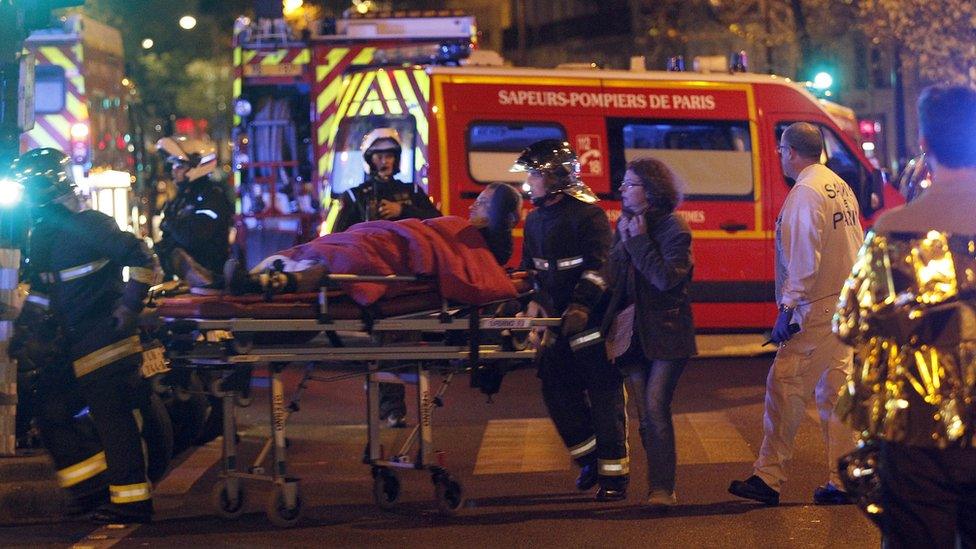
There is a sense that in some way the Paris attacks on Friday 13 November were a game-changer. But in what sense?
They have demonstrated in horrific terms that the so-called Islamic State (IS) group represents not just a threat to the Middle East but to western Europe too.
We are back to the heyday of al-Qaeda, when foreign and domestic terrorist threats coalesced into a dangerous amalgam with implications not just for defence policy but for national politics as well.
The battle against IS, far from being contained in Iraq and Syria, is now spreading well beyond its geographical origins.
So what is to be done? There are few if any new suggestions. Most proposals rely upon doing what is already being done, but more effectively or more intensively.
Intelligence drive
Much was already being done in the wake of the Charlie Hebdo attacks at the start of the year. Both France and Britain, for example, have been creating more intelligence posts.
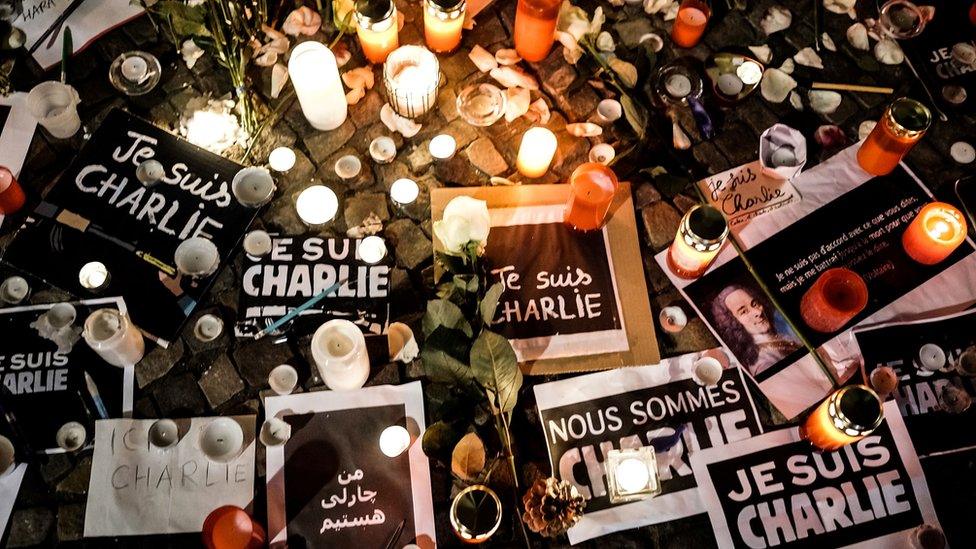
Attacks in Paris on 7 January 2015 left 17 people dead. Twelve were killed during a shooting at the Charlie Hebdo offices
But more still may be needed.
The pool of potential "targets" is large, and surveillance and monitoring a hugely labour-intensive operation.
The Paris attacks and the fact that the operation looks to have been planned in a suburb of Brussels suggest that much more needs to be done within Europe to share intelligence in a timely manner.
The US has already said it is to step up its intelligence-sharing with the French authorities.
'Degrade and destroy'
This phrase sums up the goal of the policy of the Obama administration in the US: essentially to break down IS (or Isil as many Americans term it) through sustained air attacks, in the hope that over time, local anti-IS ground forces will be up to the task of rolling back the extremists on the ground.
But has this policy been working? Compared to other air campaigns, the resources devoted to the anti-IS struggle and the average number of daily sorties have been relatively low, only surging for specific battles, for example the fighting around Kobane. But this could be changing.
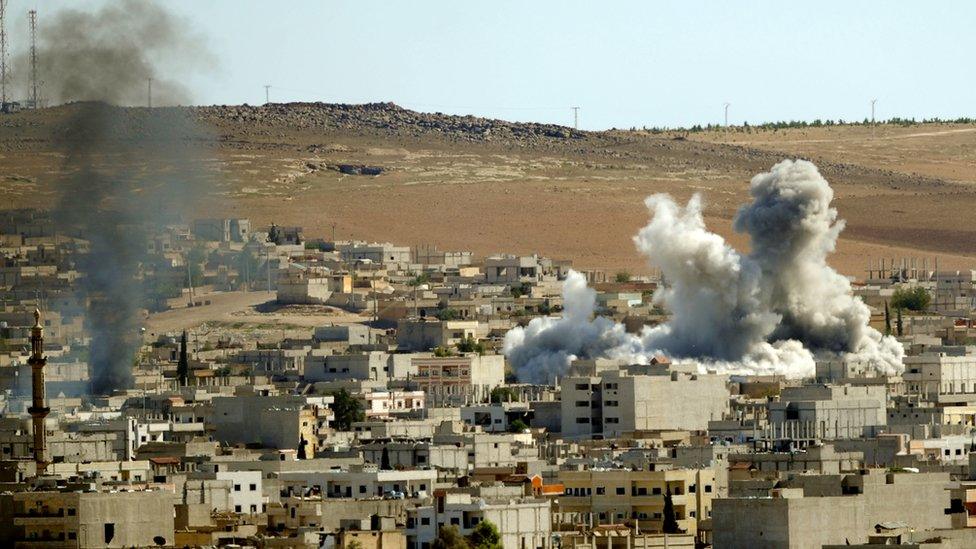
IS militants were driven out of the town of Kobane, on the Turkish border, in June
In recent days there has been a significant surge in US and coalition bombing. Some of this has been linked to the re-capture the town of Sinjar by Kurdish forces.
In the wake of the Paris attacks the French air force has dramatically stepped up its rate of strikes against the de facto IS capital, Raqqa. Operations from the French aircraft carrier, the Charles de Gaulle, in the Gulf will triple the number of French aircraft involved.
Video released by the French Ministry of Defence shows military aircraft departing on their mission
And the Americans too have been operating more planes from bases like Incirlik in Turkey, much closer to potential targets in Syria, enabling the aircraft to loiter in the area for much longer. Many other sorties are actually launched from bases in the Gulf which means lengthy flights and multiple air-to-air refuelling.
Russia too looks set to intensify its air campaign against IS (which up to now has not been top of its target list) in the wake of clear evidence that the downing of the Russian airliner over Egypt was indeed caused by a bomb.
The problem is that the application of air power alone, however destructive, cannot hold and secure territory.
Boots on the ground
Air power alone cannot defeat IS. Territory needs to be re-captured and held. The advance by Kurdish forces and modest progress around Ramadi by the Iraqi Army are all indicators that the tide on the ground may be turning. But how permanent will these successes be?
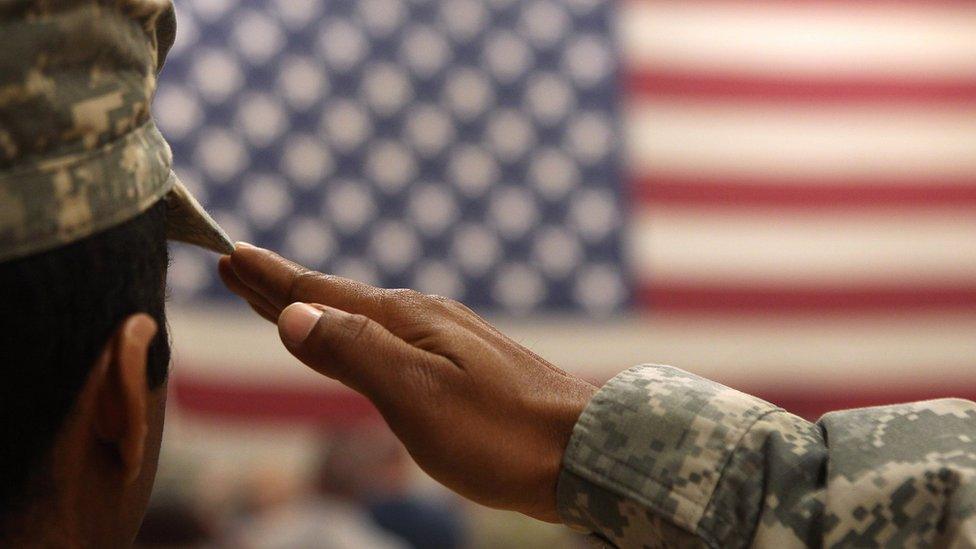
The US is reluctant to deploy soldiers to Syria
The US is still ruling out deploying its own combat forces. The experience of the interventions in Afghanistan and Iraq is still raw. But the US is stepping up arms supplies to certain rebel groups and has deployed more special forces in an advisory role. Several countries are already supplying such "enabling" specialists and we may see much more of this.
Belatedly, many would say, the US has been stepping up its air strikes against the oil exporting infrastructure from which IS gains a considerable portion of its funds. Key installations are being hit along with the tankers and trucks that are essential to oil distribution.
It is axiomatic that some progress must be made to end the crisis and re-establish some kind of order in the country. There are glimmers of progress, though don't hold your breath.
None of the actual elements fighting on the ground have yet been involved in the Vienna talks. The fate of Syria is in many ways central. But it also serves to illustrate the significant differences between many of the players and I don't mean simply between Russia and the West - more of this in a moment.
Priorities
There is perhaps a moment of opportunity here. The attacks in Paris and the downing of the Russian airliner - both claimed by IS - mean that the major powers may be able to set aside some of their differences and cooperate in an intensified campaign against IS. (Though quite how Russian and Western air power might coordinate their missions is far from clear). At the very least they have a stake in pushing forward the search for a Syrian peace.
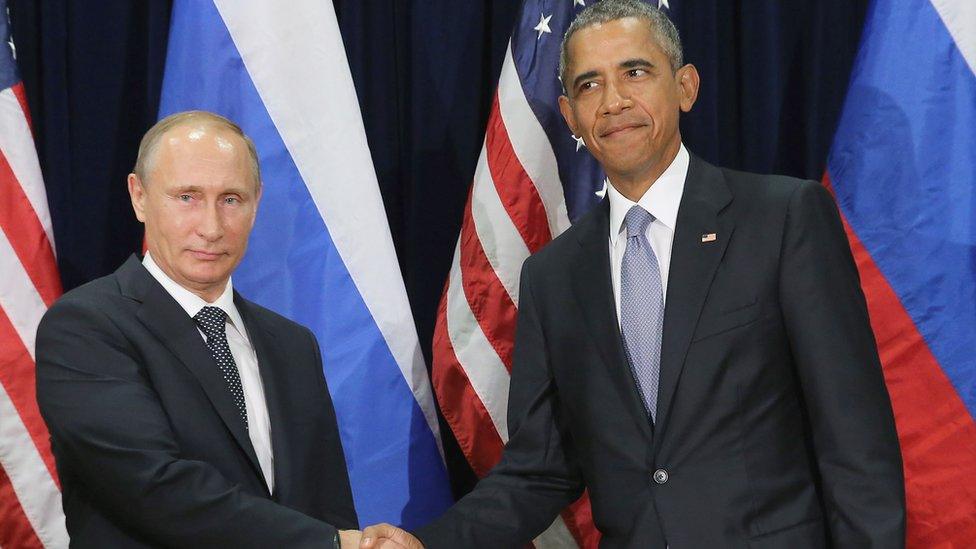
The situation provides an opportunity for co-operation between Russia and Western powers
But it is now a time for leadership and priorities. Many have criticised the Obama administration for not taking the IS threat seriously enough. Western powers, whose focus is on countering IS, have been drawn into what is an essentially parallel war waged between the Saudis, the Gulf Arabs and the Turks on one side and the Iranians on the other, over the fate of Syria and its Alawite regime.
Counter-terrorism and regional politics are of course intertwined. But the West needs to establish which battle is most important and which should be prioritised.
But as the leading US strategic commentator Anthony Cordesman has noted, "the best counter-terrorism efforts in the world cannot prevent more tragedies like Paris". His is a sober warning.
"The forces that have created violent Islamist extremist movements over the past decades," he says, "are simply too great for any lasting near-term victory in what some call, the 'war on terrorism'."